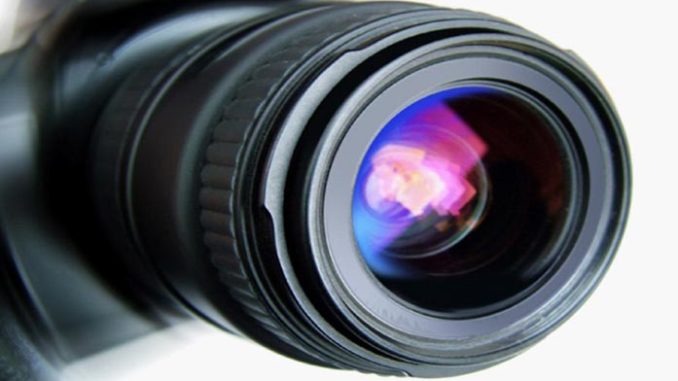
A Sierra Vista man accused of having a girl under age 15 take sexually explicit photographs of himself as he sat in his wheelchair in 2018 must stand trial later this month despite public health issues related to COVID-19, Cochise County’s top judge ruled last week.
 David Leroy Nowak is charged with eight felonies, including indecent exposure, sexual conduct with a minor, involving a minor in a drug offense, and providing obscene material (photographs) to a minor for distribution. He could face decades in prison if found guilty of all counts.
David Leroy Nowak is charged with eight felonies, including indecent exposure, sexual conduct with a minor, involving a minor in a drug offense, and providing obscene material (photographs) to a minor for distribution. He could face decades in prison if found guilty of all counts.
Nowak, 39, cited his documented high-risk medical condition as well as concerns with how jurors will be impacted by social distancing as reasons his two-week trial should not start Aug. 18. Defense attorney Eric Manch also argued that asking counsel to sacrifice his own person safety during the pandemic created an ethical conflict “that can be avoided, and should be avoided, through the grant of a continuance.”
Presiding Judge James Conlogue denied the requested delay on Aug. 6. The parties must be back in court Aug. 11 for a pretrial hearing on whether the judge will place limitations on the defense witnesses’ testimony.
Court records show Nowak called police in February 2019 to report that a female minor under his care had runaway. While investigating that report, Sierra Vista Det. Joshua Nicola obtained information from the minor that she had been forced to take pictures of Nowak’s genitals in April 2018.
She also told police she transferred the images to her phone because Nowak allegedly wanted her to share them with her friends.
The photographs do not capture the man’s face, but he appears to be seated in a red wheelchair, according to Nicola’s report. There are also distinctive markings on the man’s thighs, the detective noted.
Nowak told Nicola he had no knowledge of how or when the photographs were taken. He believes the images were surreptitiously taken while he was asleep or passed out and has continually asserted someone “set him up” with false accusations.
Nicola obtained a court order to photograph Nowak’s genitals and thighs to compare against images the minor had. He arrested Nowak in March 2019.
Conlogue had already ruled that any testimony about the juvenile’s various foster care placements and history of running away is inadmissible at trial. The judge also previously ruled there can be no testimony elicited from witnesses about whether the girl’s accusation against Nowak was part of a conspiracy with another family member.
At the upcoming hearing Conlogue must address what several adult neighbors and family friends can testify to about other aspects of the case, including examples of Nowak’s heavy drinking, their personal experiences with the girl making the accusations, and what some witnesses say they were told by a member of Nowak’s family.
It is expected that during the hearing the defense attorney will renew his opposition to having the trial conducted this month in light of the ongoing COVID-19 pandemic.
Manch has expressed concerns with how he and Nowak can adhere to CDC social distancing guidelines during the lengthy trial while also frequently needing to privately -and quietly- confer with each other while wearing masks. The attorney contends that because Nowak is out of custody awaiting trial and has not asserted his right to a speedy trial, then any delay would not prejudice the defendant’s due process.
Prosecutor Michael Powell of the Cochise County Attorney’s Office opposes any delay in the trial, which has already been put off several times for other reasons.
Both Conlogue and Powell were involved in last month’s jury trial involving Nathan Rojas. Due to social distancing concerns, the entire courtroom was closed to the public and the defendant’s family. In addition, the jurors had to do their deliberating inside the courtroom because the jury room was too small to permit social distancing efforts.
Rojas was found guilty after just two hours of deliberations. It is unknown whether the jurors had concerns serving during the pandemic or had issues with their safety, because the judge has sealed the names of the jurors.

